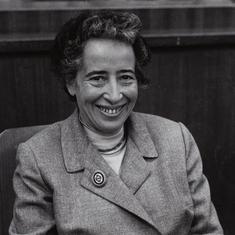Ashoka University professor sent to judicial custody for remarks on Operation Sindoor
A court in Haryana’s Sonepat rejected the Haryana Police’s request for seven more days of Ali Khan Mahmudabad’s custody.

The district court in Haryana’s Sonepat on Tuesday sent Ashoka University Associate Professor Ali Khan Mahmudabad to judicial custody in a case pertaining to his comments about the press briefings on Operation Sindoor, reported Live Law.
Mahmudabad, the head of Ashoka University’s political science department, was on Sunday sent to police custody for two days. He was arrested on May 18 after two cases were filed against him for his remarks.
He was presented before Judicial Magistrate Azad Singh on Tuesday, who rejected the Haryana Police’s request for seven more days of Mahmudabad’s custody. The court listed the case for hearing next on May 27, according to The Indian Express.
This came a day after the Supreme Court accepted a request for an early hearing of a petition challenging the professor’s arrest. The matter is likely to be heard on Wednesday.
Two cases have been filed against Mahmudabad for his comments about the media briefings on the Indian military operation against terrorist camps in Pakistan and Pakistan-occupied Kashmir initiated in the wake of the April 22 Pahalgam attack.
One case was filed against the Ashoka University associate professor based on a complaint by Yogesh Jatheri, general secretary of the Bharatiya Janata Party’s Yuva Morcha unit in Haryana. The second case was filed on the basis of a complaint by Renu Bhatia, the chairperson of the Haryana State Women’s Commission.
Mahmudabad faces charges under the Bharatiya Nyaya Sanhita pertaining to acts prejudicial to maintaining communal harmony, making assertions likely to cause disharmony, acts endangering national sovereignty and words or gestures intended to insult a woman’s modesty, among others.
Also read: Why Ashoka University professor’s arrest has no legal basis
What Mahmudabad had said
On May 8, in a social media post, Mahmudabad had highlighted the apparent irony of Hindutva commentators praising Colonel Sofiya Qureshi, who had represented the Army during the media briefings about the Indian military operation
“Perhaps they could also equally loudly demand that the victims of mob lynchings, arbitrary bulldozing and others who are victims of the Bharatiya Janata Party’s hate mongering be protected as Indian citizens,” he had said.
Mahmudabad had said that the optics of the press briefings by Qureshi and Wing Commander Vyomika Singh were important, “but optics must translate to reality on the ground otherwise it’s just hypocrisy”.
The Haryana women’s panel had accused the professor of attempting to “vilify national military actions”. Renu Bhatia said that he ignored the panel’s summons on May 14. She further said that when the commission visited the university on May 15, he did not appear before it.
Mahmudabad, however, said that he only exercised his fundamental right to freedom of speech in order to promote peace and harmony.
The professor maintained that his remarks had been “completely misunderstood” by the commission and that its notice failed to highlight how his posts were “contrary to the right of or laws for women”.
University faculty, students show support
Following his arrest, the Ashoka University faculty association condemned what it described as the “calculated harassment” of Mahmudabad, reported Hindustan Times.
In a statement, the association expressed solidarity with the professor, calling him an invaluable part of the university, a responsible citizen, and a friend to his students, who has always “advocated a profound respect for Constitutional values and morality”.
On Monday, Mahmudabad’s students described his arrest as “wrongful” and demanded his release.
In a statement shared on social media by Arpita Das, who also teaches at the university, the students from Mahmudabad’s course – Banish the Poets – said his arrest violated “not just academic freedom, but…very principles he taught us and stands for”.
The students stated that Mahmudabad “never expressed any disrespect for the nation or the Constitution, nor did he ever teach us such disrespect”.









